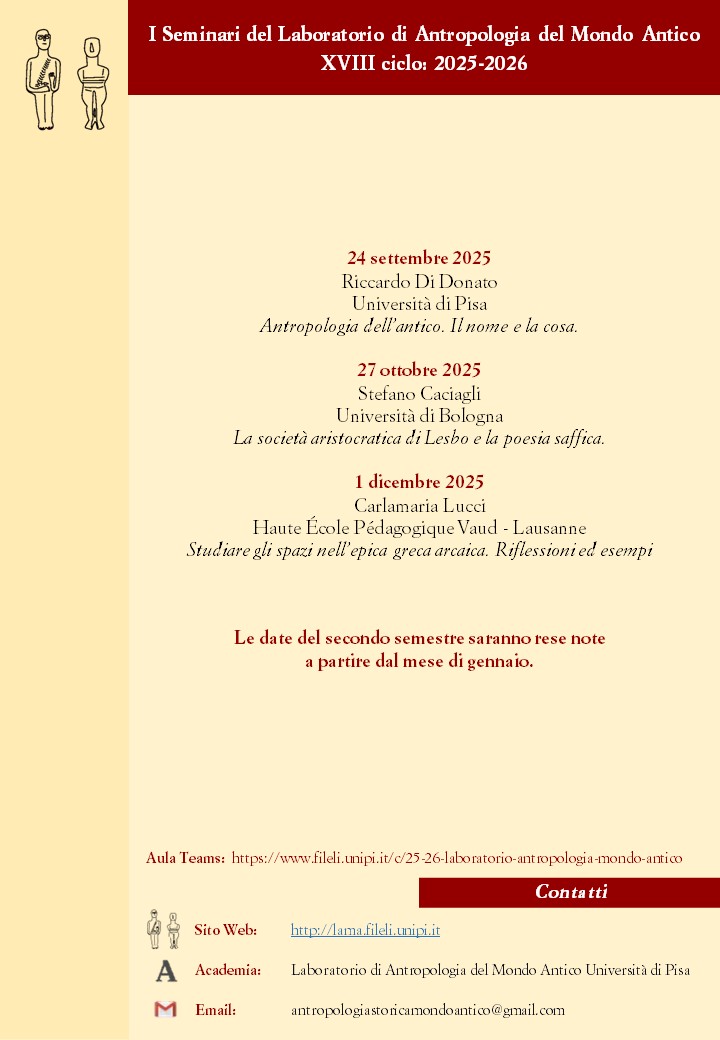CfP: Understanding and Explanation in the Study of Religions.
Call for Papers
International Krakow Study of Religions Symposium:
Understanding and Explanation in the Study of Religions. In memory of Walter Burkert (1931-2015)
Jagiellonian University, Krakow, 7th-9th November 2016
http://www.religions.confer.uj.edu.pl/en/
The merit of the academic study of religions lies in its ability to undertake interdisciplinary and multidisciplinary approaches. Its subject, religious beliefs and behaviour, can be understood as a historical, cultural and social phenomenon. On the other hand, religion seems to be a universal human trait, explainable by means of scientific methods of evolutionary biology, ethology, neuroscience, or genetics. If we try to locate the study of religions in the overlapping fields of humanities and science, it seems worthwhile to recall the distinction between understanding (Verstehen) and explaining (Erklären) as proposed by Wilhelm Dilthey.
The founding myth of the discipline tells a story of the liberation of research from the hegemony of theology, and of the creation of an empirical discipline. Understanding religious phenomena was proclaimed as one of the main objectives of our research. At the beginning, religious texts were approached as data to be commented on and interpreted through the use of philological and historical methods. Later, the birth of anthropology, sociology and psychology of religion contributed to the broadening of the field, and to the introduction of new methodologies. Recently, new research fields, such as evolutionary psychology, genetics, cognitive sciences and sociobiology, changed the landscape and climate of the study of religions by applying state-of-the-art scientific methods in hope of explaining religious beliefs and behaviour.
We would like to dedicate this edition of the Kraków Symposium to the memory of Walter Burkert, a philologist, historian, and a scholar of classics who undertook a search for “tracks of biology” in religious phenomena. Approaches such as his made it possible to bring religious traditions of the past to the contemporary laboratory for the study of religions.
Scholars of all disciplines are invited to contribute papers that engage with – but are not limited to – the following topics:
An integration of philology, history, and the scientific approaches to religion (tribute to Walter Burkert):
- Contribution of philology to understanding of religious phenomena (classical philology, Biblical studies, Oriental Studies);
- Language as a source of data for the study of religion;
- “From biological programs to semantic chains”: ways of explaining or understanding myths and rituals (historical, anthropological and cognitive perspectives);
- Anthropology of sacrifice (texts, images and theories);
- Anthropology of mysticism and mystery cults;
- Religion and power: rituals of submission, movements of disobedience;
- Relationship between religion and morality in cultural evolution from antiquity to the present day;
- Nomothetic/idiographic controversy and the academic study of religion;
- Quality and quantity in the methodology of scientific studies of religion.
The cognitive study of religion, evolutionary psychology, and sociobiology; new tracks in the landscape:
- Understanding in the cognitive study of religions: the researcher’s mind vs religious representations;
- A body in the field: sensorimotor experience as a hermeneutical tool in anthropological research;
- Understanding and explaining the human propensity to sacrifice one’s life for genetic strangers;
- Cognitive studies of religion and the problem of reductionism;
- Religion and the theory of the levels of integration (strata ontologies, religion as emergent quality);
- Cybernetics and system theory as integrative paradigm for the studies of religion.
Papers in English should not exceed 20 minutes.
Please send proposals in doc. format, including name and affiliation of the candidate, paper title and abstract (up to 200 words) to religions.confer@gmail.com.
Submission deadline is 7th September 2016.
Submissions will be evaluated by The Academic Committee by 15th September 2016.
Participation fee (payable upon paper acceptance, until 1st October 2016) is 70 EUR / 300 PLN.
Please find additional information at the conference website, http://www.religions.confer.uj.edu.pl/en_GB/.
The Organizing Committee
Lech Trzcionkowski (Institute for the Study of Religions, Jagiellonian University) Matylda Ciołkosz (Institute for the Study of Religions, Jagiellonian University) Małgorzata Alicja Dulska (Institute for the Study of Religions, Jagiellonian University) Joanna Malita-Król (Institute for the Study of Religions, Jagiellonian University) Jakub Szczęśniak (Institute for the Study of Religions, Jagiellonian University).
The Academic Committee
Krzysztof Bielawski (Institute of Classical Philology, Jagiellonian Center for Interdisciplinary Study of Culture, Jagiellonian University) Dominika Motak (Institute for the Study of Religions, Jagiellonian University) Tomasz Sikora (Institute for the Study of Religions, Jagiellonian University) Andrzej Szyjewski (Institute for the Study of Religions, Jagiellonian University) Lech Trzcionkowski (Institute for the Study of Religions, Jagiellonian University)

